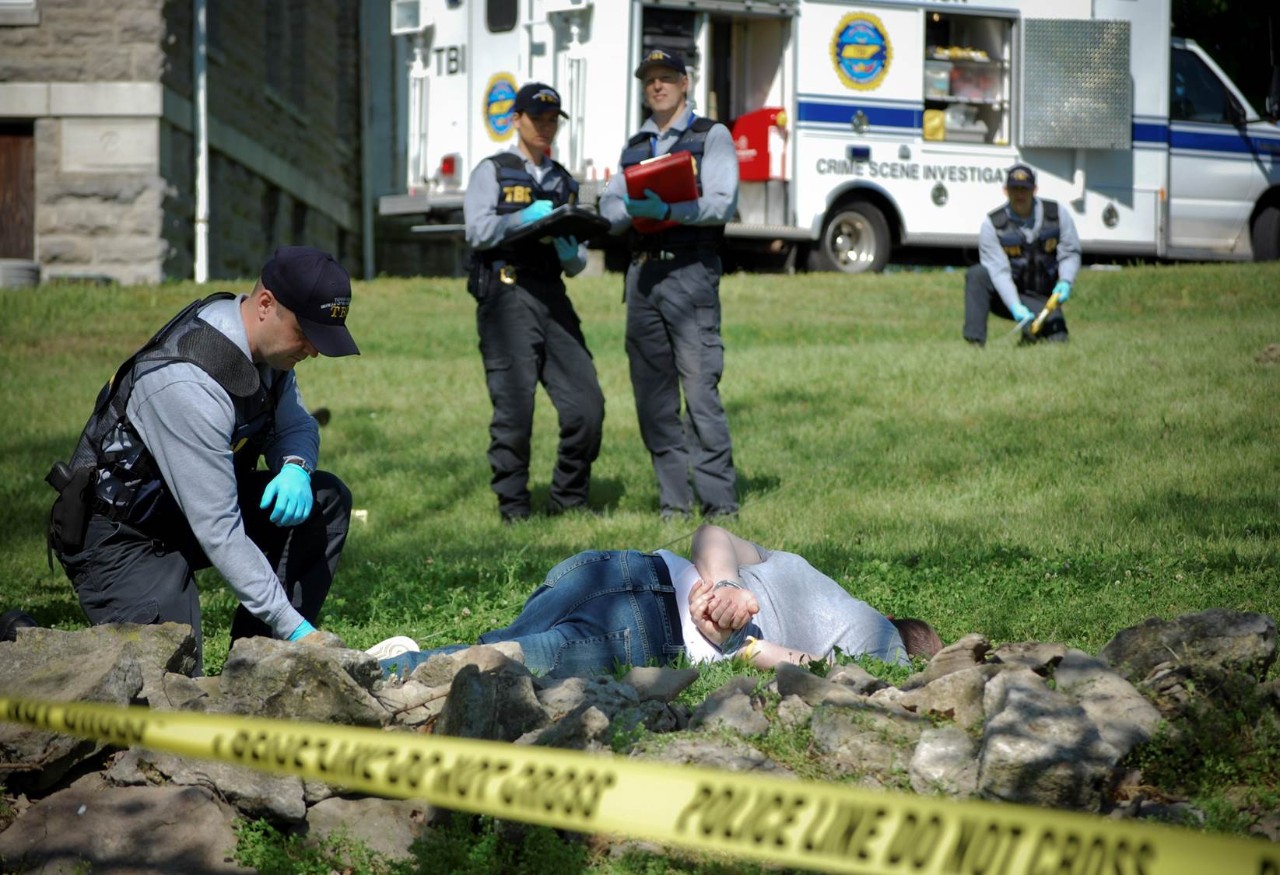THEY GOT WHAT THEY VOTED FOR
Surprised? CA residents concerned about violent crime - and it spells bad news for "progressive" DAs
By Jenna Curren
Law Enforcement Today
Oct 17, 2024
LOS ANGELES, CA - In the last 10 years, residents have seen an increase
in crime in many neighborhoods throughout Los Angeles and neighboring
areas, and now many of them are raising their concerns about the very
criminal justice form they voted for, hoping it would lead to a more
equitable system and help end mass incarceration.
According to the Associated Press
(AP), one of those residents, Alley Bean, joined the 3.7 millions
Californians who voted for the measure that downgraded many nonviolent
felony crimes to misdemeanors, such as petty shoplifting and drug use.
Now, she says that she has seen an increase in crime in her Venice
neighborhood, with some homes being robbed in broad daylight.
She said that many of the sidewalks are occupied by tents of homeless
people and dotted with people passed out from drugs. The opioid crisis
is personal to her, as she lost her 25-year-old granddaughter, Zelly
Rose, to fentanyl poisoning. She said, "I thought there was going to be
rehabilitation," with the criminal justice reform. Bean, a lifelong
Democrat, added, "I didn't think there was going to be no consequences."
Nearly 10-years after Proposition 47 passed, Bean's grievances are
increasingly shared by Californians, with smash-and-grab store thefts
captured on videos on a pretty regular basis. Then, those videos go
viral on social media, feeding a sense that the state has become
lawless. Now, more and more, voters are pinning the blame for these
incidents on efforts to advance criminal justice reform, Proposition 47,
and progressive district attorneys.
The issue has resulted in some tight races this past year up and down
the predominately blue state for Democratic and progressive members of
Congress, mayors and district attorneys who are up for reelection. Also
on the ballot is Proposition 36, which would partly roll back the 2014
law across the state. Critics of criminal justice reform claim that it
has been a "failed social experiment."
Los Angeles District Attorney George Gascón, who co-authored Proposition
47 and won the election in 2020 after protests that spanned the entire
country following the death of George Floyd, now faces a stiff
competition from a former federal prosecutor who calls himself a "hard
middle" candidate. At their recent debate, Nathan Hochman said, "Mr.
Gascón has been one of the greatest gifts for gangs," as he lambasted
him for not pursuing a gang sentencing enhancement in the high-profile
killed of "General Hospital" actor Johnny Wactor.
Gascón has come under a lot of scrutiny since taking office, including
for his office's policy on not trying juveniles as adults. Critics of
that policy point to cases a recidivism among those youth. Some of the
incidents include a man who at the age of 16 took part in a 2018 gas
station robbery and was later released from a youth detention facility,
only to be arrested and charged this past April in connection with a
homicide.
In another incident, a 17-year-old gang member in 2019, who admitted to a
double homicide and could have faced life in prison, was released in
February 2023 and arrested just months later in connection with a new
killing. Gascón continues to defend his record, saying that the use of
gang enhancements is historically tinged with racial bias and a special
committee makes decisions on them on a case-by-case basis. He said that
his office has prosecuted over 100,000 "serious crimes" in the last four
years, a rate comparable to the previous decade.
Frustration over the retail theft has pushed Governor Gavin Newsom to
champion a slate of bills that would crack down on serial offenders and
auto thieves, but stopping short of making retail crimes felonies again.
Proposition 36 goes even further, making theft of any amount a felony
of a person already has two theft convictions. It would also lengthen
some theft and drug felony sentences, make fentanyl possession a felony,
and require people with multiple drug charges to complete treatment or
else serve time.
In 2020, voters rejected a similar initiative, but this time around
there is a bipartisan coalition backing Proposition 36. Over 180
Democratic elected officials, including 64 mayors, signed onto a
campaign supporting the initiative. The measure has also been endorsed
by the California Chamber of Commerce and major retailers such as
Walmart, Target, and Home Depot.
A recent poll by the Public Policy Institute of California found that 71
percent of likely voters said they would vote yes. Jennifer Barrera,
president of the California Chamber of Commerce said, "It's hard for
businesses and communities who are really on the front line of it. I
think that it will likely increase incarceration ... but I do also hope
and expect that it certainly will have an impact on reducing crime."
Opponents of Proposition 36, including Governor Newsom and Democratic
legislative leaders, say it will take the state back to the policies of
prosecuting a failed war on drugs and locking up tens of thousands of
people, mostly Black and Hispanic, in overcrowded prisons. Newsom said,
"I know people are frustrated. I know people are angry. I am too. But,
this is not the way of solving it."
Many business owners say that the current situation is unsustainable.
Aaron Cardoza, who owns Mobil Fits, used to run an affordable clothing
shop in a historically Black neighborhood of Del Paso Heights in
Sacramento. He closed it down and switched to online sales out if a van
after the store was broken into six times in two months. He said that he
does support Proposition 36.


No comments:
Post a Comment